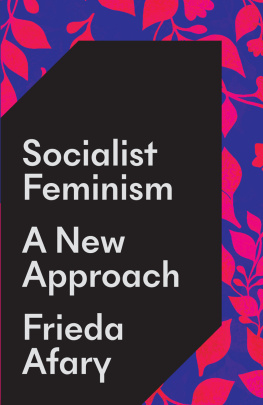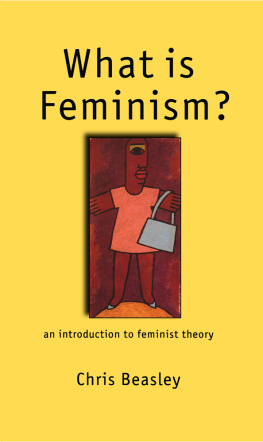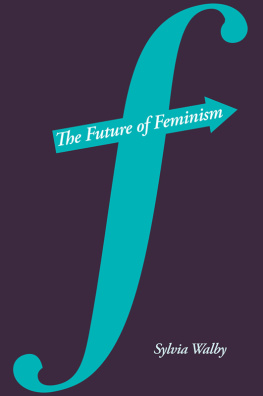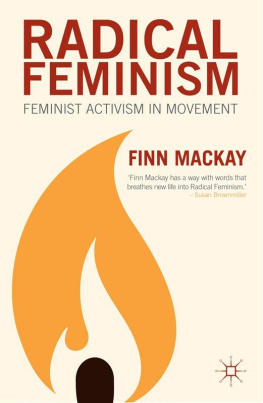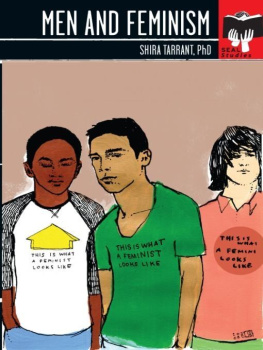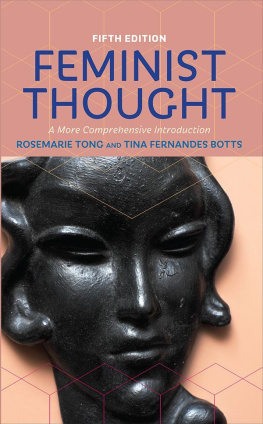F OR H ARRIET
First published 1994 by Westview Press
Published 2018 by Routledge
711 Third Avenue, New York, NY 10017, USA
2 Park Square, Milton Park, Abingdon, Oxon OX14 4RN
Routledge is an imprint of the Taylor & Francis Group, an informa business
copyright in Sydney, Australia by Pauline Johnson, 1994
All rights reserved. No part of this book may be reprinted or reproduced or utilised in any form or by any electronic, mechanical, or other means, now known or hereafter invented, including photocopying and recording, or in any information storage or retrieval system, without permission in writing from the publishers.
Notice:
Product or corporate names may be trademarks or registered trademarks, and are used only for identification and explanation without intent to infringe.
Library of Congress Cataloguing-in-publication Data available upon request
ISBN 13: 978-0-8133-2358-9 (pbk)
ISBN 13: 978-0-8133-2357-2 (hbk)
Set in 10\11 Plantin Light by DOCUPRO
I would like to thank a number of people for their help, their patience and their concern about the book. Special thanks to my sister, Lesley, who read and offered very useful comments on the manuscript and was unfailing in her faith and encouragement. I am particularly grateful also to Maria Markus who took the time to read and offer some vitally important comments on the drafts. A big thank you to Patricia Bower who came to the rescue and did an excellent job unscrambling my typing. Finally, and above all, I thank John Grumley who has been hearing about, reading, criticising and offering invaluable suggestions on the book for years.
Early versions of three chapters have appeared in the following publications:
Feminism and liberalism, Australian Feminist Studies, no. 14, summer, 1991
Feminism and Enlightenment, Radical Philosophy , no. 63, spring, 1993
The quest for the self: feminisms appropriation of romanticism, Thesis Eleven , no. 38, 1994
Humanism, as Richard Bernstein has noted, has become something of a dirty word in recent times. It has come, in the new postmodern, post-structuralist theology, to stand for a kingdom of darkness and is used by its critics to identify everything that they think is wrong with the modern world. The crimes of humanism take on a particular complexion in contemporary feminist discussions. To admit to humanist allegiances is to show oneself insufficiently radical in ones feminism, having clearly not extricated oneself from an equality posture which is content to see the liberation of women into a sameness with men. A humanist feminist clearly reveals also her philosophical naivety, believing in the persistent truth of a timeless, eternal human essence; she might even be supposed (worse) to be actively engaged in promoting those fictions of humanitys cause which have underpinned the catastrophic, totalitarian formations of modern times.
The construction of the humanist enemy-in-our-midst is, perhaps, a psychologically intelligible manoeuvre for a social movement shaping its course and attempting to define its ambitions both against those ready attempts to accommodate feminism to the status quo and against the, now increasingly evident, efforts to turn back some of the material gains made by the womens movement. It is, however, unfortunate and rather ironic that the hegemony of anti-humanist sentiment within contemporary feminism is now such that it has become difficult to work up the courage to ask what humanism really means. As feminists can we really persuade ourselves that we have given up the value commitments of modern humanism? And what sort of feminism are we producing in the process? For all its renowned terrorism, the voice of humanism has become very timid and self-censoring in the main forums for the discussion of feminist ideas. And yet the contemporary womens movement is vital to us all; we all owe it a lot and should be prepared to join the discussion. I would, therefore, like to make a claim here for a serious consideration of the humanist character of modern feminism: a discussion which does not simply deride the concerns of an anti-humanist feminism but which is, rather, prompted by the perception that its critiques call for a strong response.
Many feminists today repudiate any suggestion that the goals and objectives of feminism could be absorbed into the wider project of humanitys cause. They point to the tyrannical history of all attempts to extinguish human plurality and diversity under the banner of the unity of the species and underline that images of a common humanity or of a human essence have been built on the back of a femininity construed as nature; as humanitys other. The present book disputes none of this. It does argue, however, that an homogenising representation of modern humanism as simply a repressive, totalitarian construction of a common humanity suggests a one-sided interpretation of an ideology possessing a multitude of contemporary shapes. It needs to be underlined that modern humanism is not merely a doctrine which asserts the implicit unity of the species. Parallel with the aspiration to consider all humans within these universalising terms has been the equally strong desire to affirm particularity, to raise awareness and respect for the uniqueness of all forms of individuality: this desire has served as a basis from which to decry the totalitarian character of all images of a common humanity.
The idea of humanness suggests a post-traditional consciousness in which particularistic integrations and traditional norms of conduct no longer serve as incontestable points of reference for virtuous behaviour. To modern humanism, then, we owe that dynamic concept of persona concept which looks at individuals as unique, potentially autonomous beings, creating their own destiny, making themselves, struggling with the limitations externally imposed by existing institutions, norms and practiceswhich has come to be associated with a modern consciousness.
Modern humanisms dynamic concept of person has given rise to a wealth of diverse meanings, cultural and political causes and possibilities, among which can be discerned the distinctive, ever-changing interpretations of modern feminism. Contemporary feminism needs to be grasped as a particular, inchoate, permutation of the modern humanist allegiance to the idea of the uniqueness of the human personality. It stands both as a distinctive interpretation of the meaning of this commitment and as an index to its practical force. Historically, feminism has extended and added new meaning to the idea of the civil rights of all individuals and has qualitatively expanded our sense of the character of publicly significant human needs. At the same time, the politico-social phenomenon of contemporary feminism is itself dependent on the historical presence, albeit an embattled and fragile one, of those ideals of civil and human rights which are inscribed in modern social institutions.
While modern feminism is both a manifestation of and an interpretation of modern humanism, it is also, at the same time, a critic of all those constructions of an image of human subjectivity which presuppose the normativity of a particular socialised gender identity. The double-sided character of feminisms relations with modern humanism, as both its interpreter and its critic, does not, however, suggest any preferential discrimination between the above mentioned two faces of humanisms own value commitments. Contemporary feminism is as much a specific articulation of the universalising dimension of modern humanism as it is the inheritor and interpreter of the idea of self-determining individuality. Actually, these are not separable moments within modern humanism. In order, namely, to raise the value idea of the autonomous, self-constituted personality, it is necessary that individuals begin to establish their self-identity in terms other than the binding norms of those particularistic integrations and local affiliations which govern the contingency of their birth; in terms namely of their status as human beings.


